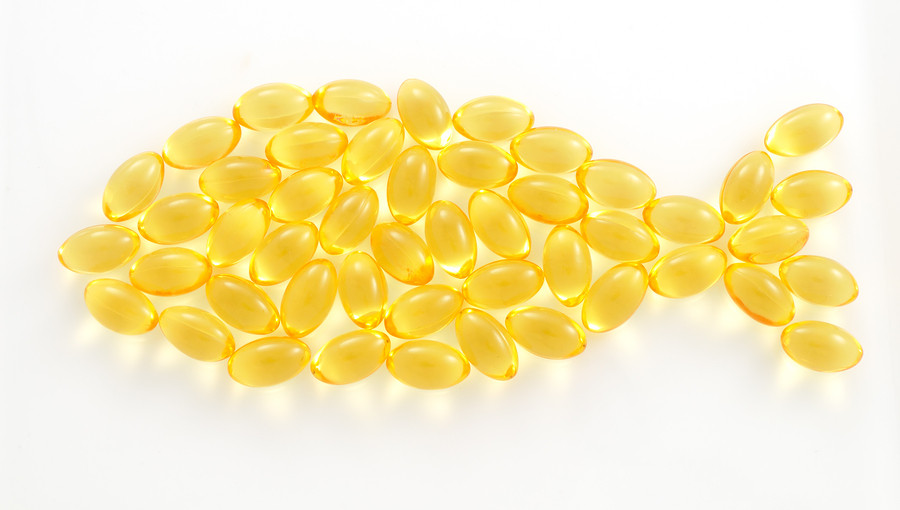
Daily cup of coffee may prevent afib recurrence

Gene-editing therapy lowers harmful blood fats in early study

What is EMDR therapy, and who can it help?

GLP-1 drugs versus bariatric surgery for treating obesity

Trying to lose weight? Be careful not to lose muscle

Two dumbbells, three exercises, and 10 minutes

Easing the emotional burden of IBS

Modify your push-ups to meet your fitness level

What is long QT syndrome?

Stroke survivors may benefit from very low LDL levels
Vitamins & Supplements Archive
Articles
Ask the doctor: Should I take a probiotic?
It’s unclear why, but it appears that people with psoriasis are more likely to also suffer from diabetes.
Potassium lowers blood pressure
When it comes to fighting high blood pressure, the average American diet delivers too much sodium and too little potassium. Eating to reverse this imbalance could prevent or control high blood pressure and translate into fewer heart attacks, strokes, and deaths from heart disease.
Normal body levels of potassium are important for muscle function. Potassium relaxes the walls of the blood vessels, lowering blood pressure and protecting against muscle cramping. A number of studies have shown an association between low potassium intake and increased blood pressure and higher risk of stroke. On the flip side, people who already have high blood pressure can significantly lower their systolic (top number) blood pressure by increasing their potassium intake when they choose to eat healthy foods.
The dangers of the herb ephedra
After the death of Baltimore Orioles pitcher Steve Bechler more than 10 years ago, many questions arose about the safety of ephedra and the government's role in regulating the herb. Bechler died of heat stroke while taking ephedra, which occurs naturally in the Chinese herb ma huang. The speed-like drug contains the chemical ephedrine, an amphetamine-like compound closely related to adrenaline. Athletes and average people alike started taking ephedra when word started spreading about its ability to aid weight loss and increase energy and alertness.
But just because a supplement comes from natural sources doesn't make it safe. Ephedra can cause a quickened heartbeat and elevated blood pressure. Side effects include heart palpitations, nausea, and vomiting. More than 800 dangerous reactions have been reported with use of the herb. These include heart attacks, strokes, seizures, and sudden deaths. According to a study in the Annals of Internal Medicine, ephedra products make up only 1% of herbal supplement sales in the U.S., but they are responsible for 62% of herb-related reports to poison-control centers.
Calcium and heart disease: What is the connection?
There's no good evidence that taking calcium supplements can harm your heart. Still, it's best to get this mineral from foods, not pills.
Image: sasimoto/Thinkstock
For decades, doctors have encouraged people to consume plenty of calcium, a mineral best known for building strong bones. About 43% of people in the United States, including close to 70% of older women, take supplements that contain calcium. Concern about osteoporosis—the bone-weakening disease that leaves older adults prone to fracturing a hip, wrist, or other bone—has driven this trend.
Calcium also keeps your muscles, nerves, and blood vessels working well, and it's one of the key minerals involved in blood pressure control. With regard to heart disease, though, there's one potentially confusing aspect of the calcium story. A test researchers often use to look for early signs of heart disease is known as a coronary artery calcium (CAC) scan (see "Seeing calcium specks inside arteries"). There's no direct connection between the calcium you consume and the amount in your arteries. But in recent years, several studies have observed a link between the use of calcium supplements and a higher risk of cardiovascular disease.
Does cranberry extract prevent UTIs?
Scientific evidence doesn’t support taking cranberry extract to prevent urinary tract infections.
Ask the doctor: Herbal supplements to treat erectile dysfunction?
Herbal supplements are sometimes advertised to improve a man’s sex life by increasing blood flow to the penis, but many are not proven effective for treating ED and may cause serious side effects.
Calcium supplementation linked to dementia risk in some women
Calcium supplementation was associated with three to seven times the risk for dementia among older women with cerebrovascular disease.
Magnesium: A mineral you might be missing
A healthy diet is the best way to make sure you're getting enough of this essential element.
Image: mamadela /Thinkstock
Magnesium probably isn't a mineral that comes to mind when you think about heart health. But a recent report showing that magnesium supplements may modestly lower blood pressure may have left some people wondering if they should head to Whole Foods to buy a bottle of magnesium pills.
"That's what I'm worried about," says cardiologist Dr. Elliott Antman, professor of medicine at Harvard Medical School. The reason? There's far stronger evidence that consuming less sodium will help improve your blood pressure. "I don't want people to think they can stop paying attention to how much salt they're eating if they're taking a magnesium supplement," he says.
The benefits of vitamin pills and chocolate
Although theoretically multivitamins and chocolate might reduce the risk of heart disease and some cancers, proof is lacking. A new randomized trial called COSMOS will test whether multivitamin pills and cocoa pills have health benefits.
Do fish oil supplements reduce inflammation?
There is no conclusive evidence that fish oil supplements reduce inflammation. Diets rich in omega-3 fatty acids are a better bet.

Daily cup of coffee may prevent afib recurrence

Gene-editing therapy lowers harmful blood fats in early study

What is EMDR therapy, and who can it help?

GLP-1 drugs versus bariatric surgery for treating obesity

Trying to lose weight? Be careful not to lose muscle

Two dumbbells, three exercises, and 10 minutes

Easing the emotional burden of IBS

Modify your push-ups to meet your fitness level

What is long QT syndrome?

Stroke survivors may benefit from very low LDL levels
Free Healthbeat Signup
Get the latest in health news delivered to your inbox!
Sign Up








